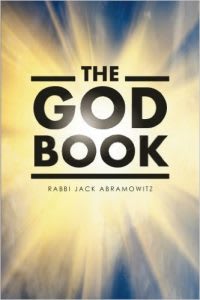10. The Creation of the Universe
The articles in this series are based upon ideas expressed in the Rambam’s Moreh Nevuchim (The Guide for the Perplexed). Numbers in brackets represent the volume and chapter of Moreh Nevuchim where these ideas are discussed.
Please note: the following entry discusses various creation theories. The Rambam's argument, as summarized below, is intended as a response to the assorted philosophical positions that he had occasion to address. It is not intended as a counter to any scientific argument and should not be taken as such.
--------------------------------------
Previous generations debated whether the universe was created or whether it always existed. [II, 13] The Rambam lists three positions in this matter, held by different groups, all of whom happened to believe in God:
* Those who follow the Torah (i.e., us) believe that everything in the universe except for God was brought into existence by Him out of nothingness. Before creation, there was nothing except for God. There were no heavenly bodies, no angels - even time did not exist. (This is necessary because time and motion are interrelated. If there's nothing in the universe to move, there is neither motion nor time. Yes, the very idea that "God existed before the universe" suggests a concept of pre-creation time, but this would not be time as we know it.)
* Philosophers including Plato agree that God created the universe but they do not believe that He created matter out of nothing. According to proponents of this theory, the mere fact that matter always existed does not put it on an even footing with God. Matter, they posit, has the same relationship to God as clay to the potter or iron to the blacksmith: it is His to do with as He pleases. Accordingly, they believe that the universe came into to existence - albeit not from nothing - and that it is capable of being destroyed - although it cannot be reduced to nothing.
* Aristotle and others believe that the universe is unchanging; it was not created and it will never be destroyed. They believe that time and motion are eternal and have always been as they are now. This position does not preclude God; in fact, it relies upon Him to reach its conclusion. Proponents of this theory posit that God never changes His mind, therefore the universe must always have been as it is now.
There are other ideas, promoted by those who do not believe in God. The Rambam considers it pointless even to introduce them into the conversation. He discusses the two aforementioned positions with which we do not agree before explaining our own point of view. For our purposes, we're just going to address the Torah perspective, which is Creatio ex nihilo (creation out of nothing).
Everything comes into existence from non-existence, though the matter to create the thing may have already existed. [II, 17] For example, you were not always around to read this. You were created from your father's seed and your mother's egg, which had different properties than you possess as a human being. One cannot learn about the sperm and the ovum by observing a person. Similarly, our observable universe cannot be used to teach us the nature of what came before it.
The Rambam gives us an interesting illustration. Let's say that a baby boy is raised by his father on an island without ever seeing a woman. As an adult, someone tries to explain to him where he came from. "There's another type of person called a woman. A baby develops inside the woman's body for nine months, then comes out."
Our island child is incredulous. "That's ridiculous!" he says. "A person can only last a few minutes without air and you would have me believe that we float in a fluid-filled sac for nine months?" He goes on to rail against the idea that the fetus doesn't eat, drink or excrete, that it has an open hole in its stomach attached to the umbilical cord, and other aspects that he finds laughable. His only experience precludes an understanding of what you and I know to be a simple fact.
When it comes to the universe, all of us have metaphorically been raised on such an island. The fetal stages of the universe are simply beyond our experience and it was be wrong to the point of arrogance for us to assume that we could infer them through mere observation of our world. In fact, it is implicit in our beliefs that things were necessarily completely different before and after creation.
Aristotle believed that the first matter, from which the universe is made, must always have existed. The Rambam agrees that the universe may have been built from this primordial matter, but such matter was necessarily created by God, Who could also remove it from existence if it were His desire to do so.
In conclusion, the state of the universe at the time of its creation cannot be known. The Rambam does not dispute, for example, that certain things in the universe may have preceded other things, such as the stars preceding the planets. He compares it to fetal development, in which some organs develop before others. We really have no way of knowing for sure.
This argument does not prove the Torah's understanding of creation, it merely opens the door to the possibility. The Rambam will go on in future chapters to demonstrate the superiority of the Torah's position over those of Aristotle, Plato, etc.

